For the Love of Feminism, Do Not Let Twilight 'Midnight Sun' See the Light of Day
The franchise, with its outdated views on gender roles, should be left in 2005.
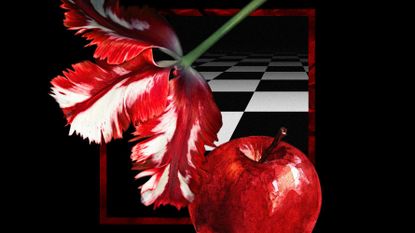

The first Twilight novel was released in 2005 when I was 15. And I will admit, I was seduced by the wish fulfillment Stephenie Meyer’s books offered. I, too, wanted a boyfriend (or two) so obsessed with me that I became the singular focus of his entire life. (Ah, to be young!) It only takes peeling back about one layer, however, to see the sanitized, gender essentialist, purity-culture fan fiction lurking just beneath that all-consuming, ever-popular love story. As a teenager, I could forgive the poorly drawn characters, the hilariously goofy concept of glittering vampire skin, and the lack of discernible plot—beyond repeated declarations of devotion. But now I see the narrative for what it actually is: a treatise on the importance of gender roles and a romanticization of every relationship red flag I can possibly think of. Which brings me to the question: Who exactly asked for a new book in the Twilight series?
Earlier this month, Meyer announced she would release Midnight Sun, the fifth book in her hugely successful franchise, told from Edward’s perspective. Let’s set aside for a moment that real Twi-hards will have already read this book when it accidentally leaked years ago. There is absolutely no need for the story to be regurgitated in the year 2020.
Meyer is often credited with bringing young adult fiction into the mainstream with Twilight, and there’s some merit to that. But none of it can realistically fly in today’s cultural landscape. Just as we all see now that over-plucking our eyebrows was a mistake, we can also see how plots about controlling men are not “romantic” plots. We have widespread language now to identify and describe emotional abuse. So many think-pieces have been published about media romanticizing abusive relationships that I can’t believe I still have to write this now—10 years after Team Edward versus Team Jacob first made it’s entrée into the pop culture lexicon. It's obvious now that framing suicide as a sign of true love is deeply irresponsible and a shallow (at best) reflection of mental health and depression. And culture has already acknowledged that gender essentialism is not representative of the world and harmfully exclusive. We have been over this, you guys.
I think the series may have benefited a little too much from Kristen Stewart’s on-screen portrayal of protagonist Bella Swan, a teenage girl who moves to a small town in Washington State where she meets and falls in love with Edward Cullen, tame vampire and domineering boyfriend. Stewart has a natural edge that can make you forget that Bella, as a character, has absolutely nothing going for her. Her most distinctive personality trait is that she is clumsy. She exists to be adored and to be rescued.
Feminist critics were quick to clock that the first book’s central conceit—Edward protecting Bella from her own horniness—is a metaphor for abstinence. The abstinence element, in which vampirism is code for lust and acceptable only when properly and heterosexually married, was culturally aligned with the mid-aughts. This is the decade, remember, that popularized “purity rings,” worn proudly by celebrities like the Jonas Brothers and Selena Gomez. A decade and a half later, however, the Jonas Brothers have publicly derided the rings, conversations about sex and abstinence mandate the inclusion of consent, and describing the notion of "girls being damaged by sex" as dehumanizing is no longer a fringe position.
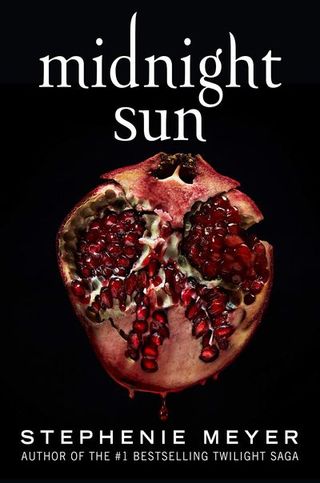
The authoritarian dynamics, in which Edward smashes things in anger and makes unilateral decisions for Bella’s protection (a security detail whose tactics include sneaking into her room to watch her sleep and using mind control to track her movements), are hallmarks of psychological abuse, not to mention the fact that they valorize outdated gender roles as the epitome of true love.
The series also dips its toe into teen suicidal ideation, using it as shorthand for “passionate romantic yearning.” In New Moon, when Edward decides to leave Bella without a word (again—it’s for her protection!) she is so distraught that she flings herself from a cliff so she can hallucinate an image of him telling her what to do. In the final book of the series, when the couple gets married and Edward says they’re allowed to have sex, Bella is titillated
to wake up covered in bruises (in a decidedly not Fifty Shades of Grey, safe and consensual, kind of way). When she immediately becomes pregnant with a murder baby who crushes her ribcage and zaps her lifeforce, she flashes a pro-life picket sign and decides to just die instead of ending the pregnancy. And then there is the Cullen family, who are all siblings and also all married… The entire series takes care to establish that partnered domesticity is a sign of personal fulfillment—cemented with Bella and Edward’s conveyor belt walk down the aisle.
Stay In The Know
Get exclusive access to fashion and beauty trends, hot-off-the-press celebrity news, and more.
Critics, academics, feminists, and advocates have done so much successful work to move the cultural needle into a more inclusive direction. A male love interest as volatile and authoritarian as Edward in a YA novel today would more likely be received as a guide to identifying red flags in relationships. The idea of retelling an already problematic story from the point of view of the possibly-abusive-certainly-controlling guy feels like an attempt to excuse his issues away, at the very moment #MeToo is struggling to finally, fully hold men accountable.
As a cohort, Gen Z has shown itself to be more liberal by far than earlier generations. It’s hard to imagine the same teens who are making socially-aware TikToks embrace the oppressive characters or romantic tropes popularized in the original books. And the millennials who first encountered Twilight in the aughts are now adults who have, hopefully, evolved with the times. I suppose we could revisit the story for nostalgia’s sake, but nostalgia implies a desire to return—rather, we've outgrown.
So, who is Midnight Sun for, then? The cultural moment that made Twilight such a huge success is long gone, along with its vampires, purity rings, and unchecked male dominance. Maybe we just let this one flop.
For more stories like this, including celebrity news, beauty and fashion advice, savvy political commentary, and fascinating features, sign up for theMarie Claire newsletter.
RELATED STORIES
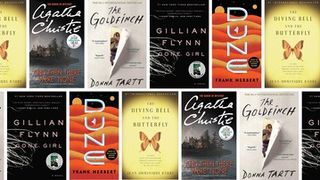
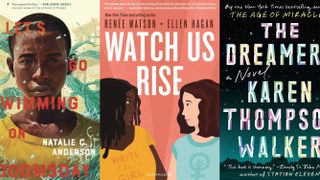
Kathleen Walsh is a freelance writer and editor whose work focuses on culture, dating, and feminism and especially where all three intersect. Her writing can be found in the New York Times, InStyle, Teen Vogue, and more.
-
 Netflix's Charming Mystery 'A Man on the Inside' Ends With Amateur Spy Charles on Another Case—Will There Be a Season 2?
Netflix's Charming Mystery 'A Man on the Inside' Ends With Amateur Spy Charles on Another Case—Will There Be a Season 2?We're already eager to see more sleuthing from Ted Danson!
By Quinci LeGardye Published
-
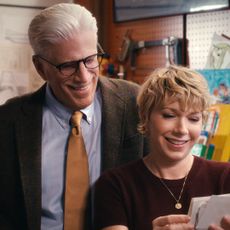 Netflix's 'A Man on the Inside' Is the Perfect Cozy Mystery—Meet the Charming Seniors Who Star Alongside Ted Danson
Netflix's 'A Man on the Inside' Is the Perfect Cozy Mystery—Meet the Charming Seniors Who Star Alongside Ted DansonThe new show from 'The Good Place' creator Mike Schur stars Ted Danson and several other sitcom legends.
By Quinci LeGardye Published
-
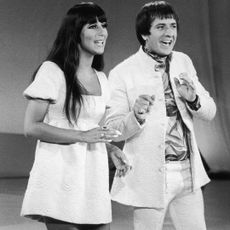 Cher Reveals the "Fiasco" That Ensued When She Performed for Princess Margaret in 1965: "I Was Mortified"
Cher Reveals the "Fiasco" That Ensued When She Performed for Princess Margaret in 1965: "I Was Mortified""It was like a bad dream that we couldn’t get out of; we just had to stand there and wait for it to be over."
By Kristin Contino Published
-
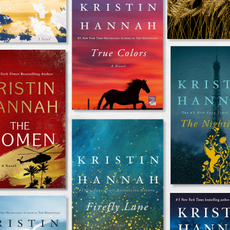 The Best Kristin Hannah Books, Ranked—From 'Firefly Lane' to 'The Nightingale'
The Best Kristin Hannah Books, Ranked—From 'Firefly Lane' to 'The Nightingale'Get your tissues ready.
By Nicole Briese Published
-
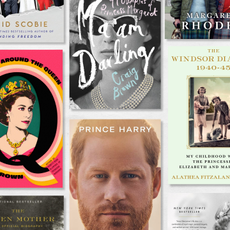 The 21 Best Books About the British Royal Family, From Tell-All Memoirs to Nonfiction Historical Titles
The 21 Best Books About the British Royal Family, From Tell-All Memoirs to Nonfiction Historical TitlesThey have more shocking revelations and juicy secrets than you saw on 'The Crown.'
By Andrea Park Published
-
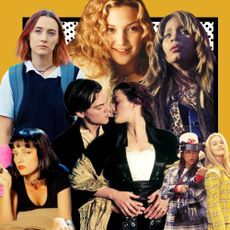 The 100 Best Movies of All Time: The Ultimate Must-Watch Films
The 100 Best Movies of All Time: The Ultimate Must-Watch FilmsWe consider these essential viewing.
By Quinci LeGardye Last updated
-
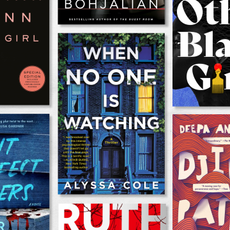 The 30 Best Mystery Thriller Books to Read in Fall 2024
The 30 Best Mystery Thriller Books to Read in Fall 2024As soon as you feel a chill in the air, you'll want to curl up with one of these page-turners.
By Andrea Park Published
-
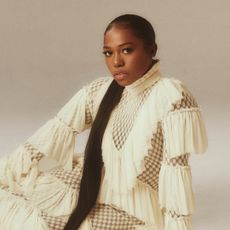 How Laci Mosley Turned "Scam Goddess" Into Her "True Con" Empire
How Laci Mosley Turned "Scam Goddess" Into Her "True Con" EmpireThe actress built a "con-gregation" with her popular podcast, and now she's expanding it with a new book.
By Quinci LeGardye Published
-
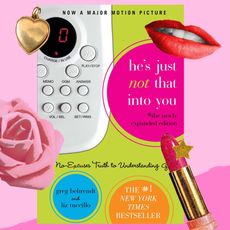 As 'He's Just Not That Into You' Turns 20, Its Authors Reflect on Just How Much (and How Little) Dating Has Changed
As 'He's Just Not That Into You' Turns 20, Its Authors Reflect on Just How Much (and How Little) Dating Has ChangedThe self-help book born out of 'Sex and the City' sparked a break-up revolution and became a pop culture phenomenon.
By Liz Doupnik Published
-
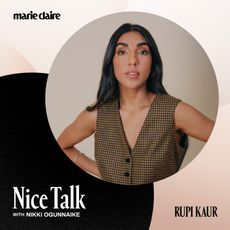 Rupi Kaur Reflects on Being Told Not to Self-Publish 'Milk and Honey'—But Feeling Empowered to Do It Anyway
Rupi Kaur Reflects on Being Told Not to Self-Publish 'Milk and Honey'—But Feeling Empowered to Do It AnywayThe best-selling author and poet spoke to editor-in-chief Nikki Ogunnaike for the 'Marie Claire' podcast "Nice Talk."
By Sadie Bell Published
-
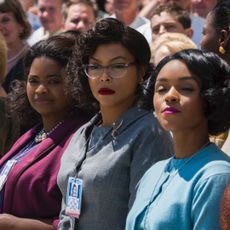 The 30 Best Book-to-Movie Adaptations Ever
The 30 Best Book-to-Movie Adaptations EverConsider your to-read list and your watch list full.
By Andrea Park Published